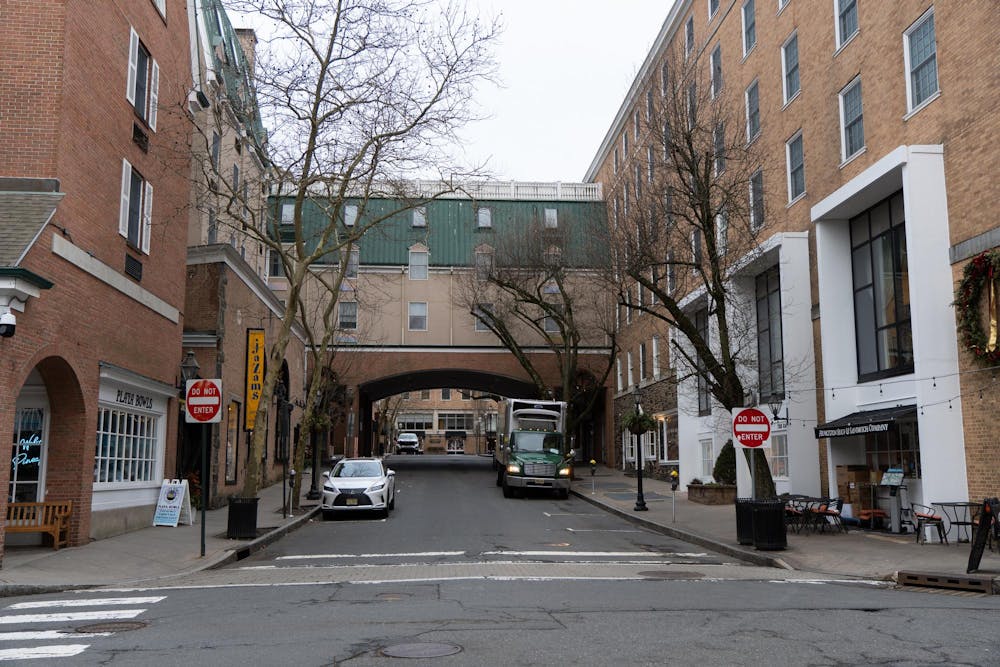The University recently announced its plan to donate $50 million over five years to the Municipality of Princeton and local nonprofits. The largest slated donation will be $10 million over five years to a nonprofit organization to provide property tax relief for lower- and middle-income Princeton homeowners. Eligible households will be based on income limits set by the New Jersey Affordable New Jersey Communities for Homeowners and Renters (ANCHOR) Program.
However, some campus and community members have expressed frustration with homeowners receiving the brunt of aid from the University, arguing instead that support should be divided differently with more given to people renting. The Daily Princetonian examined this argument and spoke to stakeholders and experts about where the town of Princeton’s housing can improve.
Maria Juega, a community member who has served on the recently-eliminated Princeton Affordable Housing Board, expressed that she wants more money from the University to be used for renters. She published a Feb. 11 opinion in TAPinto Princeton outlining her concerns.
Juega told the ‘Prince’ that he hopes that the University can provide clarity as to whether its donation is going to include renters as well as homeowners. “I would call that this rebate program or subsidy … will include not just homeowners and also renters.”
According to Juega, the University should expand its efforts beyond rebates and subsidies. She told the ‘Prince’ that the town needs better outreach and accessibility in its affordable housing roll-out, saying “Another thing [the Affordable Housing Board] was supposed to do and still hasn’t done is provide financial counseling to applicants … We did a pilot program for a few months, but this was during the pandemic. It was remote, it didn’t help that much.”
Jeff Grosser, an administrator with Princeton’s Department of Health and Community Services, told the ‘Prince’ that financial literacy services would fall under the purview of the Affordable Housing or Human Services Departments, not the Council. He wrote that the town used to connect applicants to Department of Housing and Urban Development (HUD) approved financial counseling agencies and is currently evaluating outside entities specifically for Princeton residents with “intentions to implement some form of contractual agreement for financial literacy support in 2024.”
While the town is developing support for residents, community experts argue that there are still various challenges to living in Princeton.
Urban Studies Professor Aaron Shkuda told the ‘Prince,’ “Princeton, like many municipalities, is experiencing rising home prices and rising rents … There are no employment categories in Princeton where anyone can afford rent or housing,” according to the HUD.

The US Census Bureau defines a cost-burdened region as one in which households pay 30–50 percent of their income for rent and utilities, and a severely cost-burdened area as one in which they pay more than 50 percent. According to Harvard’s Joint Center for Housing Studies, the Trenton-Princeton region is highly cost-burdened for renters, with 52 percent of all renters in the cost-burdened category and 27 percent in the severely cost-burdened category.
Shkuda noted the University's property tax status.
In the past, the University unnecessarily paid taxes on some properties for which they could have requested tax exemption. In 2023, the University claimed the tax exemption for those properties previously left voluntarily on tax rolls. The increase in voluntary contributions in 2023 was to make up for this reduced tax payment.
“Princeton paying these subsidies to the town is trying to balance that,” Shkuda noted. He also mentioned that the University’s status likely increases house values in the area.

Juega overall expressed that she wants more money from the University to be used to support programs for renters, like the planned financial literary services. She claimed no assistance is provided to applicants completing the “mind-boggling” necessary paperwork and added, “[Required] credit scores were arbitrarily set by the landlord, and most low income families are barred from affordable housing because they don’t have credit.”
Lewis Hurd, Princeton’s Municipal Affordable Housing Liaison, wrote to the ‘Prince,’ “[Princeton’s] Affordable Housing Department evaluates potential applicants based on income, family size, and assets.”
“Applicants are able to obtain a mortgage from a financial entity by providing a pre-qualification letter … [our] staff can assist applicants with initial application to qualify for the program,” he noted.
The cost of housing in the Princeton area and its impacts on equity and diversity have been charged topics for years now. Graduate student Matt Mleczko in the School of Public and International Affairs department has published various pieces on the state of housing in the town of Princeton.
“[The cost of living] disproportionately impacts Black and Hispanic/Latino households, hence why exclusionary zoning tactics and underfunding low- and moderate-income housing undermines racial, ethnic, and economic diversity in affluent places like Princeton,” he told the ‘Prince.’
He added that local zoning and land use policy discussions, meanwhile, are dominated by, “People who are whiter, older, more affluent, those who show up tend to be against any housing construction whatsoever. This keeps the supply of housing low and prices go up.”
Mleczko suggests stopping to subsidize homeowners and instead fully fund all who qualify for housing choice vouchers.
“Those who manage housing need to take active steps to make sure all potential renters know of opportunities,” Mleczko told the ‘Prince.’
He similarly acknowledged that while it isn’t the University’s duty to fix all issues but said that, as a huge landowner, employer, and wealthy institution, it can do more.
Juega noted that intentionality in the affordable housing roll-out is crucial.
“There are hardly any working class families left in Princeton. Are we really sincere in saying we want more socioeconomic diversity in Princeton?”
Abby Leibowitz is a senior News writer for the ‘Prince.’
Please send corrections to corrections[at]dailyprincetonian.com.
Correction: a previous version of this piece incorrectly stated that the University does not pay property taxes. The piece has been updated to clarify the University's taxpayer status, as well as to clarify how income limits will be used as part of tax relief efforts.








